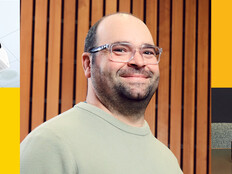Cutting Out the Middlemen: Do Professors Need Universities Anymore?
If higher education is a business, then universities are the middlemen. Now that technology allows professors to deliver learning over the Internet to hundreds or even thousands of students at a time, do professors need universities any longer? Just as the web has allowed bloggers to bypass publishers and musicians to sidestep record companies, professors can cash in by cutting out universities:
A new platform, Professor Direct, allows for teachers to cut out the school and charge students directly for their expertise.
Each course on Professor Direct starts at $49 per student. Professors can choose to charge more. Professor Direct takes the first $49, but anything over it goes directly to the professor. Some schools will actually accept some of the classes for transfer credit, so this is no free online course designed to just grab eyeballs.
As the platform grows, one could actually imagine superstar professors in all fields choosing to skip out on the Harvards and Princetons of the world to serve their content at luxury prices on a platform like this one. Given the ability to pack literally thousands of students into a class, it wouldn't take too many students, even at $100 per student, to outstrip the salary of a college professor.
Read Professors Don't Need Schools Anymore on Enterprise Efficiency.
This idea is largely hypothetical and at the moment poses no real threat to universities. But as for-profit colleges grow in popularity and education is increasingly viewed as a business, professors may choose to take an entrepreneurial approach to teaching. Of course, they will need a trendy nickname, such as professeneurs or entreprofessors, in order for the concept to be successful. This model does, however, raise a number of issues about accreditation and research. Also, all of the professors currently teaching these courses have been educated at traditional universities. Does that have an impact on the qualifications that will be needed by the professors of the future?
The Chronicle of Higher Education recently spoke with former University of Colorado professor Dan Gryboski, who is now teaching two math courses on Professor Direct:
The service puts instructors in the novel position of setting the value of their work, even as they seek to reach students who can't afford traditional options. Mr. Gryboski says he decided to start by seeking to make about what he has been paid as an adjunct, but he hopes to raise how much he earns in the future if things go well. "I see it kind of like an introductory offer," he says of his current pricing strategy.
StraighterLine also offers professors commissions for students they attract to the courses, says Burck Smith, the company's chief executive.
Mr. Smith adds that he hopes professors will devise a number of teaching models at a variety of prices. "You'll have very expensive high-touch, high-cost courses. You'll have low-touch, low-cost courses. You'll have everything in between," he says. "You'll have branded people who can charge premiums."
Read New Platform Lets Professors Set Prices for Their Online Courses on The Chronicle of Higher Education.
We have already discussed the challenges of profits in education and why incentives for attracting students potentially creates serious problems, but this model will undoubtedly entice some professors to explore this new platform.
Learn more about how professors feel about technology.








